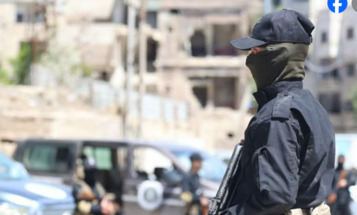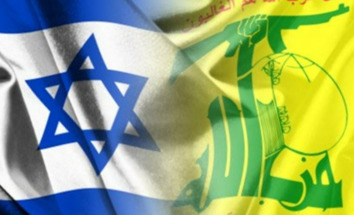-
US, UAE and KSA Seek Arab Force For Syria

The US administration is seeking to form an Arab force to replace its American counterpart in Syria and help to stabilize the situation in the north-east of the country, following the defeat of ISIS and the Iranian encroachment in the region by facilities from the current Syrian regime. Recently, there has been talking of establishing a safe zone in north and northeast Syria under US supervision and a Gulf-Turkish agreement with the local forces in those areas. The United States Special Representative for Syria Engagement and the Special Envoy for the Global Coalition to Defeat ISIS, James Jeffrey, confirmed the American seek to create a safe zone between Turkey and the Kurds in Syria, on the terms of consensus between all, and by Gulf administration on that region.
"The Trump administration is seeking to assemble an Arab force to replace its forces in Syria in case of withdrawal 2,000 troops from north-eastern Syria," according to Michael Gordon in WSJ.
The White House's plan to withdraw US troops from Syria aims to avoid a security vacuum that would allow ISIS to re-emerge, or allows the forces' gains to be waived off. "The task of the regional force will be working with local Kurdish and Arab fighters supported by the United States to ensure the inability of ISIS to re-emerge and to prevent Iranian supported forces from reaching the territories which were controlled by ISIS, the WSJ reported.
Any movement to assemble an Arab military unit and deploy it will face significant obstacles. "Combining a new force will be a challenge for Saudi Arabia and the UAE because both engage in fighting terrorism in Yemen," and Egypt seems to be hesitant about this task, and Arab countries will not be eager to send troops to Syria if the US military does not agree to keep some of its troops there, says Charles Leister, a researcher at the Middle East College.
Michael O'Hanlon, a senior fellow at the Brookings Institution, said that the new force must be strong enough to confront the regime or Iran forces if it wanted to regain the region, perhaps with Russia's help.
Saudi Foreign Minister Adel al-Jubeir has repeatedly said and as reinforcement for Trump's declarations regarding the assemble of these military forces, expressed KSA's willingness to send military forces to Syria as part of a US-led coalition if a decision is made to enlarge the size of these forces. He pointed out that: "the talks are in continuation between his country and the United States regarding the type of the forces which might be deployed in eastern Syria and the Arab parties that may contribute to forming it.
"The goal of Saudi Arabia and the UAE is to focus on confronting Iran and working against Syrian President Bashar al-Assad. This plan will put Iran and Saudi Arabia in a direct military confrontation in Syria, which could stimulate a serious and unnecessary escalation in the Syrian civil war," James Jeffrey said.
The Arab objectives of this step, represented by the Kingdom of Saudi Arabia, are mainly focus on reducing or preventing the spread and the influence of Iran on Syria and the region. But the contradictory leaks of the American-supported formation of this Arab force make this plan incomplete and has several practical problems.
Tags
You May Also Like
Popular Posts
Caricature
BENEFIT Sponsors BuildHer...
- April 23, 2025
BENEFIT, the Kingdom’s innovator and leading company in Fintech and electronic financial transactions service, has sponsored the BuildHer CityHack 2025 Hackathon, a two-day event spearheaded by the College of Engineering and Technology at the Royal University for Women (RUW).
Aimed at secondary school students, the event brought together a distinguished group of academic professionals and technology experts to mentor and inspire young participants.
More than 100 high school students from across the Kingdom of Bahrain took part in the hackathon, which featured an intensive programme of training workshops and hands-on sessions. These activities were tailored to enhance participants’ critical thinking, collaborative problem-solving, and team-building capabilities, while also encouraging the development of practical and sustainable solutions to contemporary challenges using modern technological tools.
BENEFIT’s Chief Executive Mr. Abdulwahed AlJanahi, commented: “Our support for this educational hackathon reflects our long-term strategic vision to nurture the talents of emerging national youth and empower the next generation of accomplished female leaders in technology. By fostering creativity and innovation, we aim to contribute meaningfully to Bahrain’s comprehensive development goals and align with the aspirations outlined in the Kingdom’s Vision 2030—an ambition in which BENEFIT plays a central role.”
Professor Riyadh Yousif Hamzah, President of the Royal University for Women, commented: “This initiative reflects our commitment to advancing women in STEM fields. We're cultivating a generation of creative, solution-driven female leaders who will drive national development. Our partnership with BENEFIT exemplifies the powerful synergy between academia and private sector in supporting educational innovation.”
Hanan Abdulla Hasan, Senior Manager, PR & Communication at BENEFIT, said: “We are honoured to collaborate with RUW in supporting this remarkable technology-focused event. It highlights our commitment to social responsibility, and our ongoing efforts to enhance the digital and innovation capabilities of young Bahraini women and foster their ability to harness technological tools in the service of a smarter, more sustainable future.”
For his part, Dr. Humam ElAgha, Acting Dean of the College of Engineering and Technology at the University, said: “BuildHer CityHack 2025 embodies our hands-on approach to education. By tackling real-world problems through creative thinking and sustainable solutions, we're preparing women to thrive in the knowledge economy – a cornerstone of the University's vision.”
opinion
Report
ads
Newsletter
Subscribe to our mailing list to get the new updates!






















